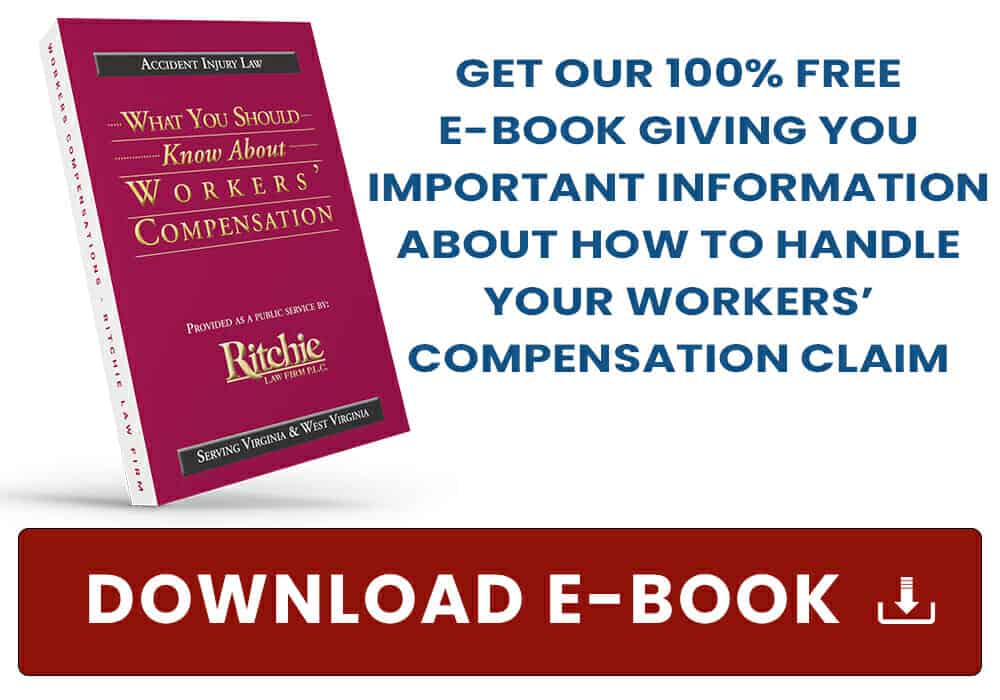Managing Chronic Pain After a Virginia Work Injury
Struggling with chronic pain after a Virginia work injury can disrupt your life and work. This article provides you with strategies to obtain proper medical treatment to help manage the pain, help with navigating the workers’ compensation process, and pointers for legal support to ensure you’re fairly compensated.
Key Takeaways
- Chronic pain from work injuries is a persistent condition that lasts longer than the expected healing period and requires comprehensive treatment and management strategies.
- Virginia workers’ compensation provides coverage for medical treatment of chronic pain, including medication and alternative therapies, as well as compensation for lost wages and disability resulting from work-related injuries.
- Preventive measures in the workplace and prompt medical care are essential in managing and preventing chronic pain, with psychological support and legal help playing key roles in coping and securing fair compensation for a workplace injury.
Understanding Chronic Pain from Work-Related Injuries

Chronic pain is the persistent, daily or weekly discomfort that continues for more than a month after a work-related injury or the surgery that follows such an injury. Unlike the occasional aches and pains that everyone experiences, chronic pain lasts for months and can even become a permanent condition, extending well beyond the expected healing period for an acute injury. This continuous pain significantly impacts an individual’s daily life and work, triggering a vicious cycle of:
- stress
- depression
- anxiety
- fear
that further exacerbates the pain.
Work-related injuries, whether they result from overexertion, repetitive motions, spinal injuries, or accidents, can cause chronic pain conditions. At the Ritchie Law Firm, we see that even in non-hazardous work environments like offices, chronic pain can develop from repetitive motions, overexertion, and other types of low impact injuries. Injured workers must understand chronic pain and methods to manage it to regain control over their lives and returning to daily activities.
The Nature of Chronic Pain
Chronic pain is very different from acute pain. Unlike acute pain, which alerts us to possible injury or danger, chronic pain serves no biological purpose. This persistent pain does not subside but remains, even when the initial injury has healed. Its persistence does not mean that the body is not healing, but it indicates that the nervous system is continuously sending pain signals to the brain.
Why Work-Related Injuries Can Lead to Chronic Pain
Work-related injuries such as overexertion, repetitive motion injuries, and spinal injuries can all develop into chronic pain conditions. A back injury, that often occurs as a result of a workplace injury like slips, trips, falls, impacts from falling objects, and vehicle accidents, can also develop into a chronic pain condition.
Navigating Virginia Workers Compensation for Chronic Pain

A work accident resulting in chronic pain can be overwhelming and daunting. Virginia workers’ compensation, however, offers a silver lining. It covers a variety of medical treatments for chronic pain resulting from work injuries, including:
- reimbursement for mileage to and from medical appointments
- temporary total or partial disability benefits
- permanent partial disability benefits
- permanent total disability benefits
- death benefits
These benefits, if applicable to the injured worker’s situation, can provide much-needed support and financial assistance for one’s well being during a difficult time.
Coverage for Medical Treatment
The Virginia Workers’ Compensation Act mandates employers to provide all medically necessary care associated with an injury, including treatments aimed at managing chronic pain. After sustaining a work-related injury, employees must be offered a panel of at least three physicians to choose from, with the selected doctor becoming the authorized treating physician. The costs for medical care provided by this authorized treating physician, specialists they refer to, and necessary treatments are typically covered by workers’ compensation.
This medical treatment can include a variety of medications for chronic pain, such as:
- NSAIDs
- Acetaminophen
- Topical pain relievers
- Muscle relaxants
- Opioids
- Antidepressants
- Anti-seizure medications
Alternative treatments like acupuncture are also recognized forms of care and are sometimes approved for temporary relief of pain under the employer’s workers’ compensation insurance.
Compensation for Lost Wages and Disability
In addition to medical coverage, workers suffering from chronic pain in Virginia may be able to receive temporary total, temporary partial, or permanent partial disability benefits based on how the chronic pain affects their work capacity and functional use of the affected limb. The specific rates, amounts, and durations for these disability benefits are outlined within the Virginia Workers’ Compensation Act, as well as in other articles on the Ritchie Law Firm’s website.
Seeking Medical Care: Your First Step to Managing Chronic Pain

Chronic pain may be a challenge, but it is a battle that can be won with the right strategy. The first step in this journey towards relief is seeking immediate medical care when injured at work. Quick reporting of work-related injuries enables employers to investigate the cause promptly and ensures that workers receive necessary medical care, which is fundamental in preventing chronic pain progression.
Delays in medical treatment and inadequate rest can aggravate work injuries, whereas early diagnosis and treatment are pivotal for:
- Restoring health
- Reducing medical expenses
- Minimizing work absenteeism
- Preventing chronic pain
When to See a Doctor
Knowing the right time to seek medical attention plays a crucial role in handling work-related injuries, including head injuries. If there is a serious medical emergency, an injured worker should immediately call 911 or access emergency services. For non-emergency injuries, workers should see a doctor approved by their employer’s insurer as soon as possible after the incident.
Prompt medical intervention is necessary to prevent a work-related injury from developing into chronic pain. A proactive approach to developing an injury care program is beneficial for quick and efficient action, leading to faster and fuller recoveries. Moreover, immediate reporting of injuries can allow for quick treatment, preventing minor injuries from escalating.
Comprehensive Treatment Options for Chronic Pain Sufferers

Managing chronic pain requires a comprehensive approach that goes beyond conventional pain management strategies. From non-steroidal anti-inflammatory drugs (NSAIDs) and acetaminophen to reduce inflammation and relieve pain, to topical pain relievers such as ointments, creams, and patches applied to the skin to alleviate chronic pain, a variety of treatment options are available for chronic pain sufferers. Even potent painkillers like opioids may be prescribed for severe chronic pain with careful monitoring due to the risk of addiction and other side effects. Some common treatment options for chronic pain include:
- Non-steroidal anti-inflammatory drugs (NSAIDs)
- Acetaminophen
- Topical pain relievers (ointments, creams, patches)
- Opioids (prescribed for severe chronic pain, with careful monitoring)
Non-pharmacological treatments also play a significant role in chronic pain management. Some common non-pharmacological treatments include:
- Physical therapy, including exercises and electrotherapy, to treat chronic pain, improve flexibility, and prevent re-injury.
- Alternative treatments such as chiropractic care and massage, which may be recommended for neck and back pain to increase blood flow and reduce stress and tension.
- Psychological treatments, which can significantly alter how the brain processes pain sensations and may be as effective as surgery in some cases.
These non-pharmacological treatments can be effective in managing chronic pain and improving quality of life.
Chronic Pain After a Virginia Work Injury: Non-Invasive Treatments
Non-invasive treatments, those that do not involve making an incision or removing body tissue, offer a less aggressive yet effective way to manage chronic pain. Some non-opioid options for managing subacute and chronic pain include:
- Medications such as NSAIDs, muscle relaxants like Robaxin and Flexeril, tricyclic and tetracyclic antidepressants, and anticonvulsants like pregabalin and gabapentin
- Physical therapy
- Transcutaneous Electrical Nerve Stimulation (TENS) units
These treatments can help reduce chronic pain by improving physical function and blocking pain signals.
Alternative non-invasive treatments beneficial for managing chronic pain from work injuries include chiropractic care and acupuncture, the latter of which may be covered under workers’ compensation for symptomatic management.
Chronic Pain After a Virginia Work Injury: Interventional Procedures
In some cases, chronic pain may prove resistant to more conservative treatments. This is where interventional procedures come into play. The Virginia workers’ compensation carrier may approve coverage for a range of specialized interventional procedures, including:
- Epidural steroid injections
- Facet joint injections
- Radiofrequency ablation
- Spinal cord stimulation
- Intrathecal drug delivery
These procedures can help alleviate pain and improve function for individuals with chronic pain.
These procedures include:
- Trigger point injections
- Epidural steroid injections
- Facet joint injections
- Lumbar sympathetic nerve blocks
- And more
Each procedure is designed to address different aspects and areas of pain. Techniques like fluoroscopically directed injections and transforaminal epidural steroid injections leverage advanced imaging to improve the accuracy and outcomes of treatments.
Coping Strategies for Living with Chronic Pain

Despite the challenges posed by living with chronic pain, adopting the correct coping strategies can enable one to lead a regular life. Adhering to the doctor’s treatment plan, including attending all appointments, taking medication as prescribed, and keeping a record of treatment and recovery can effectively manage chronic pain. Low-impact exercises such as stretching, yoga, walking, and swimming are recommended to maintain health and help manage chronic pain symptoms.
Social support from friends and family and staying socially connected enhances resilience and can help mitigate feelings of depression and anxiety associated with chronic pain. Implementing relaxation techniques like meditation or controlled breathing exercises can reduce stress levels, leading to a reduction in pain intensity for chronic pain sufferers.
Lifestyle Adjustments
Adjusting one’s lifestyle is an integral part of coping with chronic pain. Activities should be modified to accommodate chronic pain, but not cease them entirely, ensuring that pain does not dominate life. Knowing personal physical limits and engaging in activities within those boundaries can prevent the worsening of chronic pain.
A pain management plan that includes a gradual increase in activity levels can help individuals maintain functionality without causing overexertion. Benefiting from low-cost physical activity resources, such as public recreational facilities and group exercise programs, can be an effective component of managing chronic pain.
Psychological Support
Chronic pain is not just a physical condition; it has an emotional component as well, making the experience more than just physical. Cognitive Behavioral Therapy provides skills to cope with chronic pain by altering thought patterns. Psychologists aid in managing thoughts, emotions, and behaviors related to chronic pain, helping patients cope more effectively.
Virginia workers’ compensation insurance companies may cover psychological treatments like Cognitive Behavioral Therapy, acknowledging the role of mental health support in chronic pain management.
Preventing Workplace Injuries and Chronic Pain
Although it’s crucial to manage chronic pain, prevention of workplace injuries that could result in chronic pain is equally important. A comprehensive safety and wellness plan tailored to the specific safety vulnerabilities of a business, combined with continual education on safety standards for employees and management, is crucial for a safe work environment.
Safety Protocols and Training
Safety training programs that effectively protect against work-related injuries and illnesses should encompass both specific standards and a broad understanding of workplace hazards and controls. To maximize the efficacy of safety training, materials should be tailored to the language and understanding of the workforce, considering cultural and educational backgrounds, including literacy levels.
Incorporating interactive elements such as role-playing or group discussions into safety training can enhance engagement. Establishing a reward system for employees who observe safety protocols or remain injury-free for a certain time can promote adherence to safety measures.
Early Reporting and Proactive Measures
In Virginia, workers must report work injury and other work-related injuries to their employer within thirty days from the incident or diagnosis to comply with legal standards and protect their rights to benefits.
Timely reporting of work-related injuries:
- Helps in identifying and mitigating hazards
- Facilitates the development of corrective action plans
- Ensures optimal worker treatment and recovery post-injury.
Proactive measures such as onboarding training, job hazard analyses, and incorporating technology in training can improve workplace safety culture and compliance with early reporting procedures.
Legal Assistance: Partnering with the Ritchie Law Firm for Fair Compensation in Your Workers Compensation Claim
While navigating the medical world of chronic pain can be overwhelming, the legal world of workers’ compensation can be equally daunting. Skilled attorneys significantly improve the chances of a successful workers’ compensation claim. Their expertise is critical in countering the tactics of insurance companies that will attempt to deny legitimate claims.
Delegating the legal work to attorneys allows injured individuals to concentrate on their health and recovery without the stress of managing claims.
Ritchie Law Firm: How We Help With Chronic Pain After a Virginia Work Injury
For a lawyer to represent their injured clients effectively and secure fair compensation, expertise in Virginia workers’ compensation law is indispensable. Workers’ compensation attorneys are critical in:
- Navigating the complexities of claims processes
- Securing fair settlements
- Handling disputes over medical charges
- Interacting with insurers
- Ensuring clients receive proper treatment and financial recovery
Your Virginia Workers’ Compensation Attorneys Team
If you’ve been involved in a workplace accident, our workers’ comp team at the Ritchie Law Firm is happy to sit down with you and talk with you to see if your workers’ compensation benefits claim needs to have an attorney involved. It doesn’t cost anything to talk with us about your permanent disability claim. We have a wealth of information and resources available to us, and we’re always happy to share. Give us a call today at 540-433-6124 for your NO STRINGS ATTACHED conversation with our workers’ compensation lawyers.
We handle Virginia Workers’ Compensation cases out of our offices in Harrisonburg, Winchester, Charlottesville, and Staunton, Va. Or, if you just want to test the waters first, get some more information by filling out the form below. We look forward to working with you.


